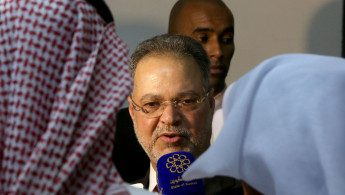'Fundamental differences' cast doubts on Yemen peace talks
Yemen's government delegation has expressed doubts over the UN-backed efforts to end its conflict with Houthi rebels, as negotiations remain stagnant for more than two months.
The government maintains it has "fundamental differences" with the Houthis over "their rejection... of measures that are necessary to put an end to their plot", it said in a statement late on Friday.
"Due to the stubbornness (of the rebels) and their procrastination, it was not possible to agree on any item on the agenda" of the Kuwait talks, the government delegation said.
The warring factions are expected to spend the next two weeks discussing their positions before reuniting in Kuwait on July 15, after a two-week break to celebrate the Eid festivities, UN mediator Ismail Ould Cheikh Ahmed said on Wednesday.
He said they would then return "with practical recommendations on how to implement the necessary mechanisms that will enable them to sign a peace accord".
On Thursday, the UN envoy said the two sides had "established the main principles that will guide the next phase of Yemen talks".
The UN-backed talks between Houthi rebels, who have seized control of large parts of the Arabian Peninsula country, and President Abedrabbo Mansour Hadi's government began in Kuwait on April 21.
Ould Cheikh Ahmed has urged both sides to make concessions to end the conflict, which has cost more than 6,400 lives since March 2015 and displaced 2.8 million people.
He has put forward a peace roadmap that would see the formation of a unity government and the withdrawal and disarmament of the rebels.
UN Secretary General Ban Ki-moon on Sunday met the two delegations in Kuwait City and urged them to accept the roadmap.
Despite a Saudi-led military intervention launched last year in support of Hadi's government, the rebels and their allies remain in control of swathes of territory including the capital Sanaa.





 Follow the Middle East's top stories in English at The New Arab on Google News
Follow the Middle East's top stories in English at The New Arab on Google News


